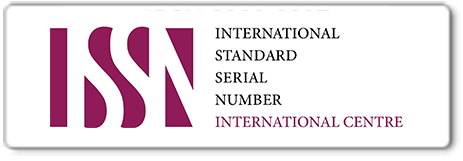The Influence of Firm Size, Capital Structure, Liquidity, Profitability, And Asset Structure on Firm Value
A Study on Manufacturing Companies in The Infrastructure Sector Listed on The Indonesia Stock Exchange (IDX) For the Period 2020-2023
DOI:
https://doi.org/10.59086/ijest.v4i1.597Keywords:
Company Size, Capital Structure, Liquidity, Profitability, Asset Structure, Company ValuesAbstract
References
Aeniyatul. (2019). Chapter III Method Research. Journal Accounting and Finance 3 1–9.
Ekonomi, F., & Indonesia, UP (2024). Opportunity and Liquidity on the Capital Structure of State-. Journal of Economics 7 10622–10633.
Handayani. (2020). Chapter III Research Methods. Suparyanto and Rosad Journal 5 (3), 248–253.
Kalbuana N., Yohana, Y., Bp, AI, & Cahyadi, CI (2021). The Influence size company policy debt profitability to mark company (Case study) company properties listed on the Indonesia Stock Exchange in 2016 – 2020). Journal of Accounting Research Politala 4 (2), 58–66. https://doi.org/10.34128/jra.v4i2.79
Lisnawati, L., & Syafril AS (2021). The Influence liquidity profitability and solvency to going concern audit opinion (Study on retail trade companies listed on the Indonesia Stock Exchange). Land Journal, 2 (2), 1–14. https://doi.org/10.47491/landjournal.v2i2.1274
Novela, P., & Yanti, HB (2022). The Influence performance finance structure assets and size company to mark companies in food and beverage companies listed on the IDX. Trisakti Journal of Economics 2 (2), 1933–1940. https://doi.org/10.25105/jet.v2i2.14891
Putra, B., Dotulong LOH, & Pandowo MHC (2023). The Influence culture organization environment work and burden Work to performance employees at PT. Uphus Khamang Indonesia. EMBA Journal: Journal of Economics, Management Business and Accounting Research 11 (02), 279–289. https://doi.org/10.35794/emba.v11i02.47983
Romer, E. (2020). The Influence transfer price and ownership managerial to avoidance Tax. Journal Accounting 2 (1), 15–22. https://www.statistikian.com/2013/01/uji-f-dan-uji-t.html
Rossa, PAE, Susandya AAPGBA, & Suryandari NNA (2023). Influence liquidity profitability growth company size companies and capital structure against mark company banking at BEI 2019-2021. Collection of Student Research Results Accounting (KHARISMA), 5 (1), 88–99.
Sa'adah, NS, Ismawanto T., & Apriani ES (2022). Analysis report finance based on ratio liquidity ratio solvency and ratio profitability of PT Bank Perkreditan Rakyat Ronabasa 2018-2021. Journal Student Final Project Accountancy Poltekba (JMAP), 2019 1–8.
Safaruddin Nurdin, E., & Indah, N. (2023). The Influence of capital structure and size company to mark companies listed on the Indonesia Stock Exchange. Journal Accounting and Finance 8 (1), 166–179. http://jurnal.unidha.ac.id/index.php/JEBD/article/download/271/192
Salsabilla S., & Rahmawati, MI (2021). The Influence profitability growth opportunities, and capital structure towards mark company. Journal Accounting Science and Research 10 (1), 1–20.
Sari, DS, Mutia, A., & Sudharyati N. (2024). The Influence profitability size companies and capital structure against mark company. Journal Scientific Journal of Batanghari Jambi University, 24 (2), 1707. https://doi.org/10.33087/jiubj.v24i2.5062
Satya, A., & Arfianti IR (2021). The influence of financial distress, leverage, liquidity and profitability to giving going concern audit opinion on companies in the sub-sector transportation & logistics listed on the IDX in 2017-2020. Institute Business and Informatics Kwik Kian Gie Jakarta.
SHELEMO, A. A. (2023). No Title. Nucl. Phys., 13 (1), 104–116.
Sirait LP, & Afrindo. (2021). Research methods. STEI Repository. Indonesian College of Economics (STEI) Jakarta.
Sugandhi, GV, Gisella, V., & Dara, SR (2023). Influence liquidity solvency and activity to mark company with profitability as intervening variable. Streaming, 1 (2), 63–76. https://doi.org/10.53008/streaming.v1i2.1466
Sugiyono. (2019). Coefficient determination according to Ghozali. Journal Accounting and Finance 3 1–9.
Suwarsa T. (2021). The Influence of tax restaurant and hotel taxes on income original Padangsidempuan City area period 2018-2020. Journal Accounting 51 (1), 1–15.
Tanjung, G. (2015). Pig. Galang Tanjung, 2504 1–9.
Tarigan SRB, Syahyunan S., & Aditi, B. (2023). The Influence profitability and liquidity to mark company with policy dividend as variable moderation. Journal of Business Economics Management and Accounting (JEBMA), 3 (3), 779–788. https://doi.org/10.47709/jebma.v3i3.3067
Downloads
Published
How to Cite
Issue
Section
License
Copyright (c) 2025 Bayu Wulandari, Lilis Farida Situmorang, Su Novianti Suci Pratama, Muhammad Habibie

This work is licensed under a Creative Commons Attribution 4.0 International License.
International Journal Of Economics Social And Technology under the terms of a Creative Commons Attribution 4.0 International License / CC BY 4.0 This license permits anyone to copy and redistribute this material in any form or format, compose, modify, and make derivative works of this material for any purpose, including commercial purposes, so long as they include credit to the Author of the original work.


















